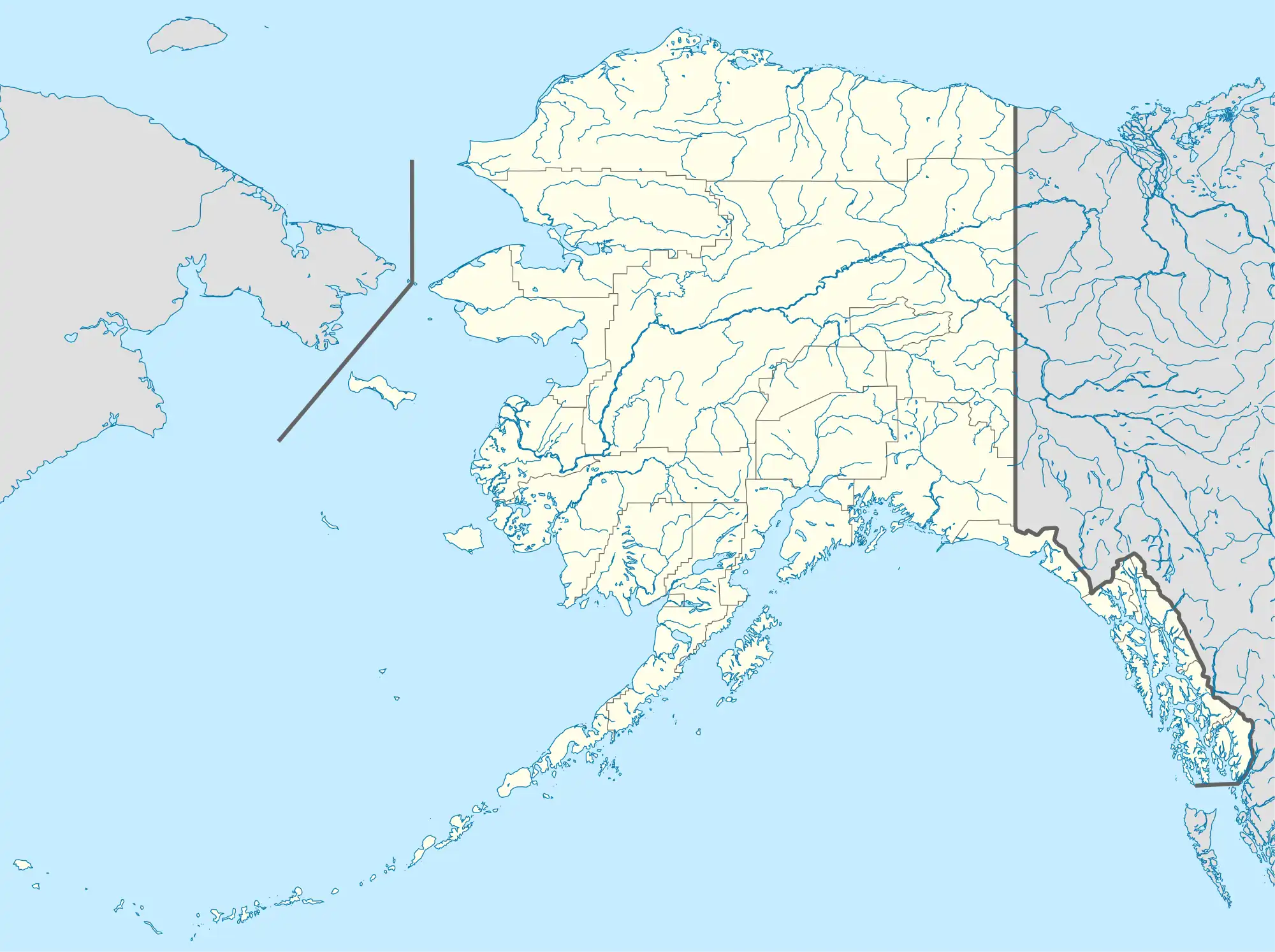Dry Creek Archeological Site | |
Alaska Heritage Resources Survey
| |
.jpg.webp) Archaeologists at work at Dry Creek | |
 | |
| Location | Address restricted[1], Denali Borough, Alaska, U.S. |
|---|---|
| Nearest city | Healy, Alaska |
| NRHP reference No. | 74000442[2] |
| AHRS No. | HEA-005 |
| Significant dates | |
| Added to NRHP | September 6, 1974 |
| Designated NHL | June 2, 1978[3] |
The Dry Creek Archeological Site is an archaeological site not far outside Denali National Park and Preserve. It is a multi-component site, whose stratified remains have yielded evidence of human occupation as far back as 11,000 years ago.[4] The site is located on the northern flanks of the Alaska Range, near Healy, Alaska, in the Nenana River watershed. There are four major components to the site, layered in an outwash terrace overlooking Dry Creek, with layers of loess (wind-deposited materials) separating them.[5]
The most recent component of the site dates to 2600-1400 BCE. The youngest component is one of the few places in the Alaskan interior where notched projectile points have been found. The two oldest components are dated to 8,500-9,000 BCE, and include assemblages of microblade stone technology.[6] The bottom layer yielded a collection of more than 3,500 artifacts, primarily stone flakes. One of the more prominent finds is a stone scraping tool with a triangular head, measuring 31 by 16 millimetres (1.22 in × 0.63 in).[5]
Multiple types of stone tools have been found at the site, as have remains of processing a variety of animals. The site is valuable for the insight it yields into the critical transitional period at the end of the most recent Ice Age.[4] The site was first discovered by C. E. Holmes in 1973, with major excavations following in the late 1970s, with further research occurring in the 1990s.[5]
The site was listed on the National Register of Historic Places in 1974,[2] and was declared a National Historic Landmark in 1978.[3]
See also
References
- ↑ Federal and state laws and practices restrict general public access to information regarding the specific location of this resource. In some cases, this is to protect archeological sites from vandalism, while in other cases it is restricted at the request of the owner. See: Knoerl, John; Miller, Diane; Shrimpton, Rebecca H. (1990), Guidelines for Restricting Information about Historic and Prehistoric Resources, National Register Bulletin, National Park Service, U.S. Department of the Interior, OCLC 20706997.
- 1 2 "National Register Information System – (#74000442)". National Register of Historic Places. National Park Service. July 9, 2010.
- 1 2 "Dry Creek Archeological Site". National Historic Landmark summary listing. National Park Service. Archived from the original on September 10, 2012. Retrieved December 28, 2007.
- 1 2 "Prehistoric Archaeology". Bureau of Land Management-Alaska. Archived from the original on October 7, 2016. Retrieved October 16, 2014.
- 1 2 3 Hoffecker, John (2001). "Late Pleistocene and Early Holocene Sites in the Nenana River Valley, Central Alaska". Arctic Anthropology (Volume 38, No. 2): 139–153. JSTOR 40316727.
- ↑ Dixon, E. James (1985). "Cultural Chronology of Central Interior Alaska". Arctic Anthropology (Volume 22, No. 1): 47–66. JSTOR 40316079.

.svg.png.webp)